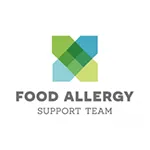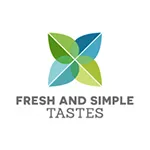
Our goal when crafting dining menus is to provide offerings that align with the trending foodservice landscape while aiming to satisfy the wide range of special dietary concerns and needs commonly seen in our campus community.
You can learn more below about available resources and dining options, as well as accommodations that are available through University Housing and Dining. We emphasize the importance of reaching out to our registered dietitian to discuss how we can best meet your dining needs. Contact the UHD Dietitian for support managing a special diet.
Dietary Options
Plant-Based Dining
Vegetarian and vegan options are readily available at every meal in the dining halls, with options easily identifiable by either a vegetarian or vegan icon. We encourage you to review dining hall menus before visiting the dining hall and to read menu signage carefully when making selections. Never hesitate to ask for help from staff if you have questions or need assistance.
University Housing and Dining aims to provide transparency in our labeling so that guests can identify vegan and vegetarian products quickly and with confidence. Please utilize the criteria detailed below to help you make informed dining decisions when selecting plant-based options.
Items are not labeled as Vegetarian if they contain any meat, fish, shellfish or by-products of animal slaughter, such as E120, E542, gelatin or rennet/rennin.
Items are not labeled as Vegan if they contain any meat, fish, shellfish, dairy or dairy by-products, eggs or egg products or animal-derived ingredients, such as gelatin, honey, keratin, rennet/rennin, trypsin, E120, E542, E631, E901, E904, E913, E966 or E1105.
Please note that items labeled as Vegetarian or Vegan may contain ingredients that have been manufactured on shared machinery and/or contain ingredients that are vague in their source, such as amylase and vitamin D3. If you have questions regarding a particular menu offering, contact dietitian@austin.utexas.edu.
Religion-Based Dining
Students with religious dietary needs should consult with our registered dietitian prior to signing a housing contract to determine if and how their needs can be met on a residential dining plan. Some religious dietary requirements, such as maintaining a vegetarian or vegan diet, can be accommodated in the dining halls. However, students with highly specific or complex restrictions may find that their needs cannot be met through a residential dining plan. To learn more, contact UHD Dietitian.
Disability-Related Dining Accommodations
Students who have a food-related disability, such as a food allergy or celiac disease, and wish to apply for housing that requires a meal plan may request a dining accommodation if they feel the current meal plan and self-management resources do not meet their individual needs. This determination should be made after consultation with the UHD registered dietitian. Students should begin the dining accommodation request process before signing a housing contract for an existing condition or as soon as a new diagnosis is made during the academic year.
Depending on the nature of the disability and/or requested accommodation, UHD may consult with Disability and Access (D&A). Because of this collaborative process, requests can take time to complete so please plan ahead to ensure timely processing prior to housing contract deadlines. Students who may need accommodations in other areas of the university because of their disability should contact Disability and Access directly to discuss documentation and registration requirements.
To learn more about disability-related dining accommodations, schedule a consultation with our expert registered dietitian by contacting dietitian@austin.utexas.edu.
Food Allergies
Allergies and Special Dietary Needs
University Housing and Dining is committed to providing equal and integrated access to dining services for all qualified persons with disabilities, including food allergies and celiac disease. Read below to learn about the existing resources available to students, which can help mitigate concerns with self-management of your diet on campus. However, it is recommended that each student work with the UHD registered dietitian individually to determine the dining strategy that best meets their dietary needs. For more information about how to best manage your food allergy or special diet or to request a dining accommodation, contact dietitian@austin.utexas.edu.
Food Allergen Labeling and Icons
University Housing and Dining makes every effort to identify the top nine major allergens that can cause allergic reactions for individuals with food allergies. Menus are published online and available one week prior to service. In addition, allergen icons are available on digital menu boards above each serving line in the dining locations.
| Eggs | Fish | Milk | Peanut | Sesame | Shellfish | Soy | Tree Nuts | Wheat |
|---|---|---|---|---|---|---|---|---|

| 
| 
| 
| 
| 
| 
| 
|
Allergens we label include: milk, egg, fish, sesame, shellfish, peanuts, tree nuts (includes coconut), soy (includes soybean oil) and wheat.
Ingredient and allergen information is based on food manufacturer provided data and the possibility exists for manufacturers to change the formulation of their products at any time, without notice to our facilities. It is important for students to be aware of this risk and to make dining decisions accordingly.
Food Allergy Support Team

When college life speeds up, it can be tough to dine safely with a food allergy, but luckily, students don’t have to do it alone. The Food Allergy Support Team (FAST) is here to help, offering educational materials, staff training and, in some cases, dining and living accommodations to make managing a food allergy a little easier.
FAST members receive in-depth training on food allergies and are ServSafe Allergen certified through the National Restaurant Association. Students needing help or advice can find a team member in any UHD dining location by looking for the FAST logo on employee uniforms (branded hats or buttons) or by asking to speak to a FAST member.
Fresh and Simple Tastes

The Fresh and Simple Tastes (FAST) Lines at J2 and Kins Dining are anything but fast food! Each dish our FAST Lines feature is freshly prepared right on the line using lean proteins, gluten-free whole grains and heart-healthy fats. Our FAST Lines provide a communal dining experience for those with food allergies without the concern for cross-contact that usually comes with a buffet-style dining environment.
Each dish on our FAST Lines are prepared exclusively with ingredients that do not contain peanuts, tree nuts, fish, shellfish, milk, eggs, soy, wheat, sesame and gluten. Open for breakfast, lunch and dinner seven days a week, the FAST Line offers something for everyone – from Hawaiian BBQ chicken to chimichurri pork chops and fajita-stuffed baked sweet potatoes.
Students with celiac disease or who have food allergies that fall within the top nine allergens are encouraged to dine at our J2 and Kins Dining FAST Lines. However, anyone is welcome to dine at our FAST Lines, as accommodations are not necessary. It is important to note that this serving line cannot accommodate special requests, so it is important to review menus online in advance.

